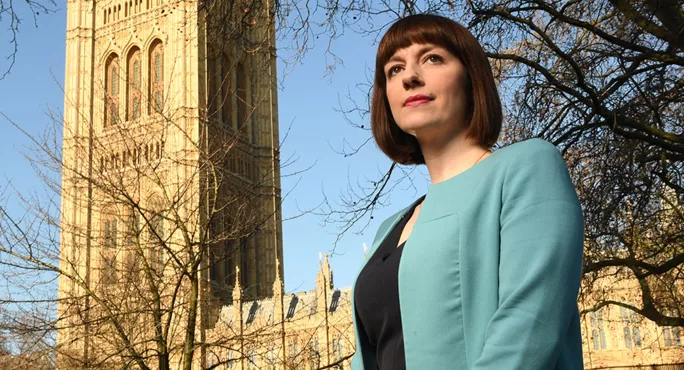Labour pledges to plug ‘alarming’ subject teacher gaps

Labour is to pledge to headteachers that it would ensure pupils are taught by specialist teachers in each subject after a new analysis by the party revealed “alarming gaps” in expert teaching.
Shadow education secretary Bridget Phillipson is expected to tell the NAHT school leaders’ conference tomorrow that schools are facing a “perfect storm” in recruitment and retention in the teaching workforce, forcing more and more to rely on non-expert teachers.
Labour has published a new analysis tonight ahead of her NAHT conference speech on Saturday showing the extent to which subjects in secondary school aren’t taught by specialists.
It comes as experts warn that the Department for Education expects less than half of the new teachers it needs to start initial teacher training courses this year.
The DfE has hiked its recruitment target for secondary teacher trainees by 25.9 per cent this year, meaning thousands more entrants will be needed after two years of lower recruitment.
- Recruitment crisis: DfE set to miss 2023-24 targets
- Recruitment: DfE raises secondary ITT target by 26%
- ITT: Primary applications plummet by a fifth
The Labour Party analysis has found that more than one in four physics lessons in the past year had been taught by a non-expert teacher.
It also found that nearly one in five French, German, drama and DT lessons in the past year had been taught by a non-expert teacher and one in three ICT lessons since 2015 were taught by a non-expert teacher.
Meanwhile, one in ten maths lessons in the past year were taught by a non-expert teacher, the party said.
Its research also found that the following numbers of teachers had no relevant post-A-level qualifications :
- Two in five physics teachers
- One in four design and technology teachers
- One in three business and economics teachers
- One in four chemistry teachers
- Two in three computing teachers
- Half of ICT teachers.
Labour has previously pledged to recruit thousands more teachers using money raised by ending private schools’ charitable status.
Tonight’s announcement does not include any more detail about how the party plans to tackle individual subject shortages.
Ms Phillipson will say: “We face an unprecedented workforce challenge because of the recruitment and retention crisis created by the Conservative government over the last 13 years.
“Not enough specialist teachers in subjects like maths and physics leaves schools scrambling to fill roles, or asking non-specialist teachers to go above and beyond. That means that high standards are for some of our children, not all of them.
“Excellence must be for everyone: that is why the next Labour government will invest in more teachers to fill these gaps and provide expertise, paid for by ending tax breaks for private schools.”
Responding to the Labour analysis, Paul Whiteman, general secretary of NAHT, said: “We have a shocking recruitment and retention crisis in education right now, and the government is doing nothing to tackle it.
“We have been sounding the warning for years, and now have been driven to balloting our members for strike action over it. The crisis is being driven by eroded teacher pay, unmanageable workload levels and scant regard for wellbeing. These are the issues Labour will have to address if they are to make good on their pledge.”
Geoff Barton, general secretary of the Association of School and College Leaders, said that the findings chime with what the unions are hearing in schools.
“Staff shortages are a growing problem, extend widely across many different subject areas and are impacting education on a daily basis,” he said.
“The situation simply cannot continue as it is and Labour’s pledge to recruit more teachers is a good start. We look forward to hearing more about their plans to address pay erosion, funding challenges and unmanageable workloads in order to make the profession more attractive to graduates and ensure their pledge can be fulfilled.”
Last year, teacher trainee recruitment data was described as “catastrophic” by union leaders and experts called for “radical action” to address the underlying problems with low pay and high workload in the teaching profession.
In 2022-23, the government target for secondary teacher trainee entrants was missed by 41 per cent, with just 12,356 entrants.
And last year, the government missed its primary trainee target for the first time since before the Covid pandemic, and by the widest margin in eight years.
Earlier this week, DfE data revealed that applications to primary ITT courses had fallen by almost a fifth year on year as experts warned of a “worrying” trend.
The DfE has been approached for a comment.
You need a Tes subscription to read this article
Subscribe now to read this article and get other subscriber-only content:
- Unlimited access to all Tes magazine content
- Exclusive subscriber-only stories
- Award-winning email newsletters
Already a subscriber? Log in
You need a subscription to read this article
Subscribe now to read this article and get other subscriber-only content, including:
- Unlimited access to all Tes magazine content
- Exclusive subscriber-only stories
- Award-winning email newsletters
topics in this article



